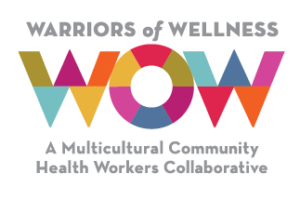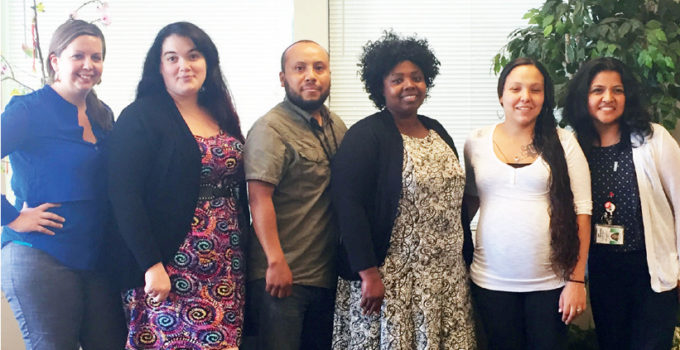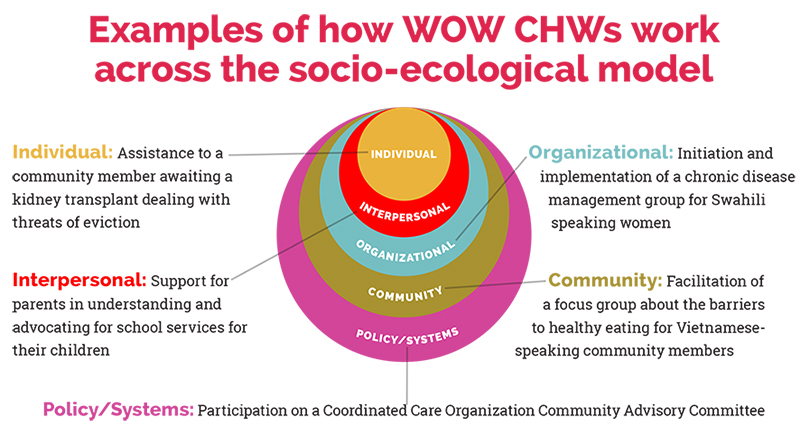Chronic disease & WellnessThe Worriers of Wellness (WOW) Project ran from 2014-2020 and is no longer active, however the work that was done and the model created hold relevance and learning about clinical integration of culturally specific, community employed CHWs. |
| The WOW Community Health Worker project began as a pilot in 2014 with 6 Community Health Workers (CHWs) based in 5 culturally-specific community organizations.The goal was to create a model for health systems to contract for community based CHW services to improve health in communities of color and decrease health disparities. An evaluation was conducted by the Multnomah County Health Department Community Capacitation Center in late 2015 and early 2016 to assess progress. Data was collected using pre/post surveys of participants, service/activity tracking forms of CHWs, interviews and a focus group. WOW Community Health Workers show dedication and passion through complex issues which affect multiple communities, such as lack of adequate access to services, cultural and language barriers and history of violence and trauma. |
What makes the WOW project unique?
The community-based organizations in the WOW collaborative have the ability to recognize and respond to community identified issues at individual and community levels with a wide array of activities and services. WOW CHWs are members of the communities most affected by health disparities in our region and are able to bridge the gap between these communities and the health system. The WOW collaborative has built a model for health systems to contract for the services of community-based CHWs. One demonstration project which connected a Spanish-speaking CHW with a Kaiser Permanente clinic has shown promising results: |
—Administrator, Kaiser Permanente Mt. Scott Medical Office
| Key elements of the modelCommunity Health Workers are involved in program planning and design, with interventions specific to each community and responsive to community issues. “The CHWs have been able to work with groups in a more empowering way. They are able to have the group decide what direction it wants to go. It’s not the CHWs deciding what to do, it’s the group deciding what their issues are and taking ownership of that.” Culturally specific community based organizations leverage their rich resources and connections to help people. |
“We use our conference room for the classes and the cooking in our kitchen.” The WOW Supervision model includes Administrative and Clinical Supervision (LCSW.) "My supervisor and I have monthly meetings and check-ins … I have that time to share with her — someone who understands that what I’m doing is stressful and listens.” Training and evaluation is provided by national experts, Multnomah County Health Department’s Community Capacitation Center. “I think the training did a really good job of building comraderie and this really strengthens relationships and increases trust between people working on this project together.” |
Project PartnersORCHWA, Kaiser Permanente, Health Share of Oregon, Multnomah County Community Capacitation Center, Urban League of Portland, El Programa Hispano, Immigrant & Refugee Community Organization (IRCO), Native American Youth and Family Center (NAYA), Familias en Acción, and Northwest Family Services. |



